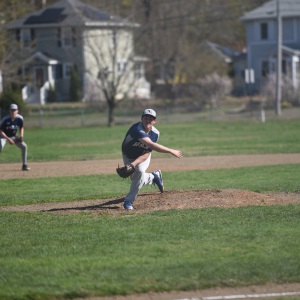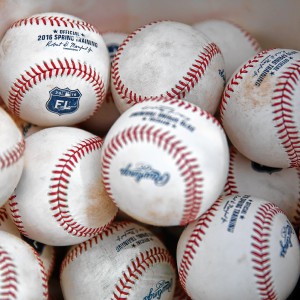Fit to Play with Jim Johnson: Olympic medalists are champions, not heroes

Jim Johnson
| Published: 09-02-2024 11:22 AM |
By all accounts the Paris Olympics were a great success. We were treated to a magnificent sport spectacle, the world’s greatest athletes at their best. The display of sportsmanship was fulfilling, a tribute to the competitors. The Olympics are for the athletes; it is not a competition between countries, yet the commentators continue to present the medal count every evening. I am against that. Winning more medals does not mean that your country is better. But if we’re really counting, some reporters have suggested that Australia is the real winner. With more kangaroos than people, Australia won far more medals per capita than anyone. Let’s drop the medal count.
The enthusiasm of the spectators was special. I was amazed to see so many people enthusiastically greeting the marathoners on their lengthy run. Drug disqualifications were scarce. One issue was the removal of the bronze medal from the American gymnast. I don’t know who actually won the medal but it seemed that the judges were not willing to go the distance to determine the winner. We all know that video footage is available for them to take the time to score properly. Both gymnasts have spent endless hours preparing; they deserved better.
I think NBC did a good job with good commentaries and the addition of Peacock for replays was a plus. Like most people, I have my criticisms. I suspect few actually know who won the decathlon. Hint — it wasn’t an American. To me, the decathlon is one of the truly great events but coverage was poor, relegated to snippets on Peacock. The heptathlon was better covered but only because an American was in the top five. Wrestling, one of the first Olympic sports, was mostly forgotten, but not beach volleyball. I have always observed that wrestlers are one of the fittest groups, yet often forgotten. Compensation for wrestlers is far less than marquee sports.
As usual, there is way too much attention paid to too few athletes; every beginning video highlighted the same four or five athletes. I had a problem watching Simone Biles and her mother selling pharmaceuticals while she was competing. Seemed overly commercial. I got tired of watching Sydney McLaughlin-Levrone take off her make-up. NBC needs to stop showing celebrities in the audience. Tom Cruise seems like a good guy, but I don’t need to know if he’s watching the soccer game. Let’s focus on the athletes and their families.
As I was researching to write the columns about the Olympics I kept seeing Michael Phelps’s name. The term, Olympic hero, is almost synonymous with Phelps. About that time, I read a newspaper article about a man who saw a young swimmer caught in a rip tide. He jumped into the Atlantic Ocean, swam to the boy and saved him. I found several stories where people saved drowning swimmers but ended up drowning in the process. These were heroic activities. Phelps was a great athlete and I have great respect for his swimming, but I question whether swimming faster than someone else makes you a hero.
A woman named Roberta from San Antonio walked out of her house and saw her neighbor being attacked by two pit bulls. Without hesitating, she grabbed a rake, ran into the yard and successfully warded off the dogs, suffering several cuts. This is true heroism. I question whether throwing the shot put or running 100 meters under 10 seconds is the same.
What makes a hero? If you search the literature, you will find many criteria and definitions, but I’m prone to agree with a group of psychologists who identify three criteria. First, the individual must go out of their way to deliberately help an individual or a group. Second, there must be no financial implication. Third, there must be risk. The risk does not have to be physical. The man who jumped into the ocean deliberately to save a youngster from drowning meets all of those criteria, as does the woman who saved her neighbor at great risk to herself.
NBC commentators label most Olympic gold medal winners as heroes, but not all. Archers never seem to be heroes and neither are skateboarders. Skeet shooters — no way. Maybe it’s because they don’t have uniforms. Labeling people as heroes is far too casual. Doing a good deed is rewarding but it’s not heroic. This casual labeling diminishes true heroes. I suggest calling our Olympic gold medal winners something other than heroes – champions.
Jim Johnson is a retired professor of exercise and sport science after teaching 52 years at Smith College and Washington University in St. Louis. He comments about sport, exercise, and sports medicine. He can be reached at jjohnson@smith.eduArticle continues after...
Yesterday's Most Read Articles






 HS Roundup: Brayleigh Burgh powers Franklin Tech softball past Mahar, 18-0 (PHOTOS)
HS Roundup: Brayleigh Burgh powers Franklin Tech softball past Mahar, 18-0 (PHOTOS) HS Roundup: Smith Vocational baseball pulls ahead late to defeat Franklin Tech, 6-3
HS Roundup: Smith Vocational baseball pulls ahead late to defeat Franklin Tech, 6-3 HS Roundup: Mohawk Trail softball earns first win of the season following 16-4 victory over Mahar
HS Roundup: Mohawk Trail softball earns first win of the season following 16-4 victory over Mahar Weekend roundup: Caleb Thomas tosses gem in Greenfield’s 4-0 win over Frontier; plus GMLB opening day results
Weekend roundup: Caleb Thomas tosses gem in Greenfield’s 4-0 win over Frontier; plus GMLB opening day results
